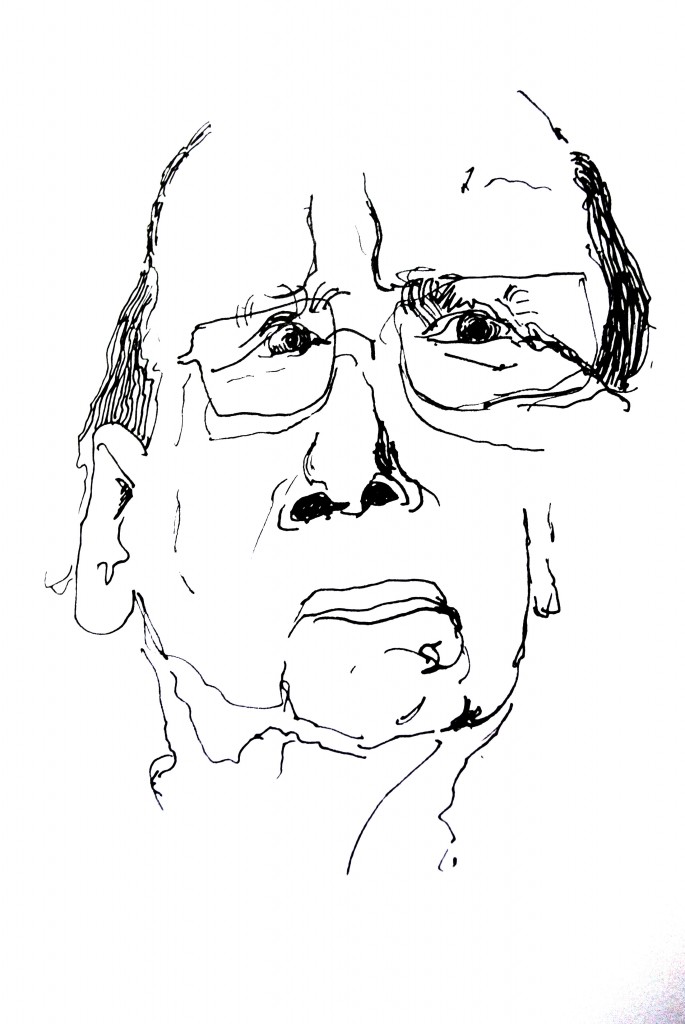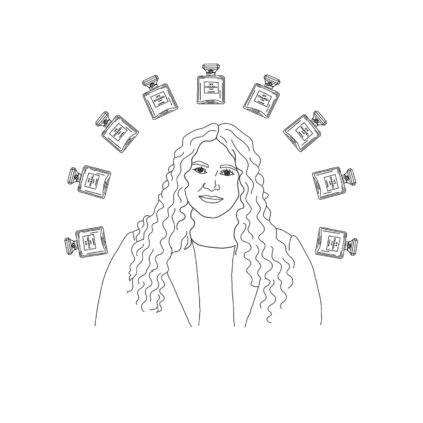Daniel Yergin founded the New Journal in 1967, the summer before his senior year at Yale. He then went onto study international relations at Cambridge as a Marshall scholar, start an energy consulting company called Cambridge Energy Research Associates, and win the Pulitzer Prize for his 1992 book The Prize. Yergin is one of the most quoted authors on energy issues. A revised paperback edition of his sixth book, The Quest: Energy, Security, and the Remaking of the Modern World—which the Economist called a “masterly piece of work”—is out now. This is a condensed version of the conversation Yergin had with members of TNJ’s editorial board when he was back on campus last month.

TNJ: Tell us about the founding of the New Journal.
DY: I’d run for chairman of the YDN and lost to Strobe Talbot, who is now a very good friend. Usually when you lose you became managing editor, but I had this mission, the New Journal, to find this voice for New Journalism. And it was really fun, starting it. We found this designer at the art school. The early copies were really handsome. I was able to raise a few thousand dollars—because that’s all we needed then—and start the magazine. We were able to get an office in the basement of Silliman and it worked like a magnet. Once it was there, people found their way there, people who might not have an outlet, and just—came in.
We drew people from the graduate school: one of the key writers was the wife of a guy who had been my TA; there was a wife of a law school student. Then a freshman showed up who wrote this great article about when he Doors came to New Haven. The magazine gathered momentum very quickly; the talent appeared. Our passion came from New Journalism. We were trying to come up with these names for it, and then someone said. “Well then, why don’t we call it the New Journal?” Fiction narrative applied to nonfiction was the heart of what we were trying to do.
TNJ: What was journalism at Yale like when you were here?
There wasn’t a lot of competition. The media scene is clearly much more crowded at Yale today. I loved and learned a lot from the News, spent an enormous amount of time there. But I really wanted to do this. I did it with a conviction, and just assumed that the world was waiting for the New Journal, or at least the campus was.
When I was here, journalism was a profession a lot of people wanted to go into. People still want to go into it, but it was simpler then. It didn’t have the kind of challenges and confusion that exists today because of the Internet. It was a big thing, and people saw it as a field that would grow and would have a lot of opportunities. And, for quite a number of years, it did. I had always been in the news. I loved the news. I thought there was nothing more important, actually, than being a campus journalist.
TNJ: How much did the idea of New Journalism inform and shape the magazine, and was that challenging? You had to have all these literary skills.
DY: There were really strong models. Gay Talese and David Halberstam were very prominent. There was Esquire, New York, the kind of places where that writing was taking place. It was very compelling. We have a lot of questions about launching the magazine. We just had entrepreneurial self-confidence. Yale had this very strong entrepreneurial tradition in journalism that went back to Henry Luce and the founding of Time. Looking back, it seems to me that it was a bolder, riskier thing to do than it seemed at the time.
TNJ: What kinds of skills did you carry from TNJ into your professional life? And what kinds of literary interests inform your writing?
DY: I was always drawn to narrative. I did my senior thesis on satire in the Victorian novel, and I was taking a writing course with Robert Penn Warren. So I had this deep belief in the importance of storytelling which I think I still have: to find the stories that illuminate, and find what I call the emblematic personalities who carry the story. The kind of writing and editing skills I learned at the New Journal, I certainly carried over into my life and my work.
Then I went to England to take a Marshall Scholarship, but I continued to do magazine journalism and wrote for British press, New York, and the New York Sunday Times Magazine, honing narrative writing. During the mid-seventies, my journalistic and academic interests came together around the subject of energy, and I began writing about energy journalistically. At Cambridge you don’t take any courses for a Ph.D. They just say, “Go away, write a book and come back.” At least, that’s what they said to me. That was my first book, Shattered Peace. I think that the kind of writing I learned from doing New Journalism was extremely helpful because that was the way I’ve written ever since, to combine argument with narrative.
TNJ: What leads you from that kind of narrative journalism to book-length journalism?
DY: One of our colleagues, Susan Braudy, gave me a writing lesson: you don’t sit down and write a book or a chapter. You sit down and write a paragraph. Eventually you have a lot of paragraphs and it looks like a chapter or an article. I think that in the books I write, the chapters have a kind of article-like arc to them. It is different, I think, to undertake a book. Both The Quest and The Prize took me awhile to get going. It is a little overwhelming. When you are looking at scaling the heights of a book, it is more complicated process to get yourself going. An article is very finite. You know it’s going to be three thousand, four thousand words, and you know how to shape it.
TNJ: So you were embarking on a book at the same time you were launching a company.
DY: That was very unwise. I don’t know what I was thinking—probably some of the same spirit that led to the launch of the New Journal, not fully recognizing the difficulty of the task you are taking on.
The thing about The Prize is that it was pleasurable, restful, even meditative. To write about history, is really an imaginative activity, getting into another world. Absorbing all the information, putting the stuff aside and then shaping it from what’s in your head. Getting a flow. I remember interviewing the science fiction writer Ray Bradbury when I was in high school, and he said writing is paying out rope from your subconscious. For me, it’s a little anachronistic—I write long-hand, which is really hard because of my handwriting. My penmanship has really declined. And I tend not to finish the second half of the word, so I often myself can’t guess it. I have to type it up really quickly.
My mother was an artist, and when I was growing up I would watch her on her sketchpads—I remember this really vividly—and when I’m composing I’m working on a sketchpad. I sketch it out long-hand and see how things will fit together. I imagine that all of you write on a computer. I’ve seen people who spend all their time just re-arranging things on the computer screen, instead of just getting closure, and so writing long-hand is a kind of disciplining myself. I like to stretch out on a couch when i’m writing, to be physically more relaxed, and it’s easier to do that with a pad than with a computer.
TNJ: Which newspapers do you read?
DY: We get five newspapers at home and we get lots of magazines. We must truly be one of the last households to do that. It is overwhelming. You have to decide what it is you want. I was talking with a student here who was creating this aggregator for news, but still, whether it’s the Times, the Wall Street Journal, the Atlantic or the Economist, whatever it is—you’re making an investment in the editors, the people who will be the gatekeepers for you, making the judgments, because otherwise you’ll just be bobbing in a constant sea of undifferentiated information.


